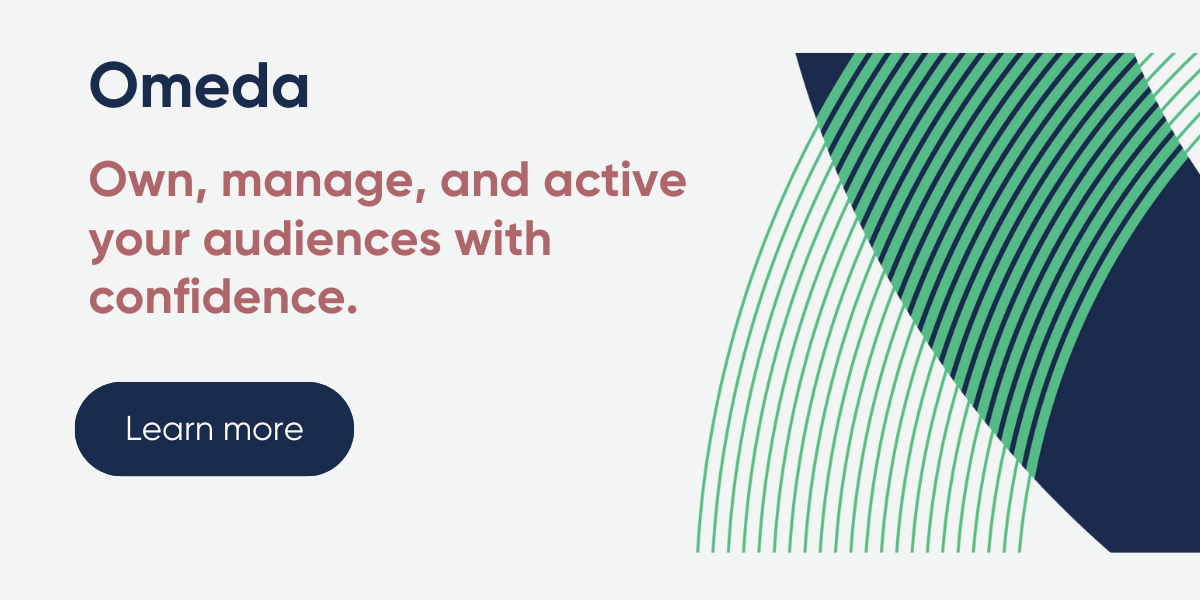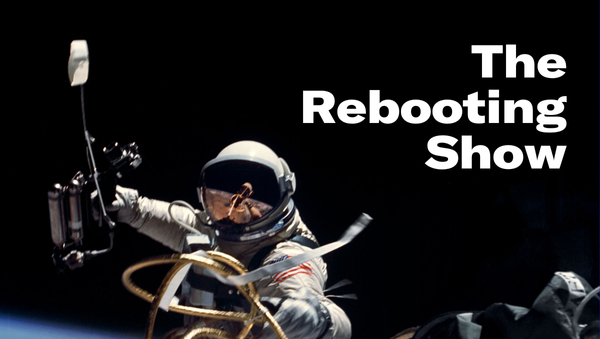Beyond algos
Plus: the pivot to intentional audiences
I’m heading back to the Possible conference later. I hope to see someone brave enough to swim out to Teads Island, a meeting space that’s incongruously smack dab in the middle of one of the Fontainebleau’s dozens of pools. Weird stuff. I'll have impressions of the event on Thursday. I approach giant industry events as an anthropologist. In today’s newsletter:
- Are media business executives mediocre?
- A conversation with House of Kazen’s Matt Cronin on putting the audience first
- For members: Connecting the dots on the algorithms to AI transition and its implications
First up, a message from Omeda.

All your audience needs, all in one place

Are disjointed workflows and siloed data keeping you from reaching your audience?
Omeda is here to help. We take in audience data from every channel — from email and events to website, print and ads — and unify it in one place, so you can segment, personalize and monetize your audience with ease.
Spend less time managing your audience and more time connecting with them with Omeda.
Recommendations
Mediocrities: A problem with the media business is that it is filled with mediocre business people, according to Sam Lessin, a Silicon Valley investor and husband of The Information CEO Jessica Lessin. He allowed there are some exceptions. This is not the first time I’ve heard this line of argument. A major media company CEO told me the same once, saying executive talent was of a far lower caliber compared to consulting, finance and of course tech. I get the sense that many in Silicon Valley hold this sentiment. The challenges of the media industry is how to attract top talent when other sectors are far more vibrant and lucrative. Also some good discussion of how publishers deal with the “theft” of their content by large-language models. (More or Less)
Leverage matters: Google is reacting to the California Journalism Preservation Act by removing links to news sites for some users. It is a shot across the bow of regulators and news publishers. The power imbalance is simply too great between platforms and publishers for these kinds of legislative and regulatory band-aids to have much impact. (LA Times)
Data tolls: Getting paid for your data is an idea like micropayments that makes sense on paper and still never works. AI could alter that since large-language models are obliterating the grand bargain of the open web. Vana joins players like TollBit in trying to make this a reality, in Vana’s case focused on individuals. (Techcrunch)
Uncivil war: The New York Times is one of many publishers dealing with increasingly restive newsrooms. In the case of the Times, there is a culture war aspect to this that goes beyond humdrum issues like pay and benefits. The activist streak in many younger newsroom staffers is anathema to leadership. (WSJ)
Go deeper: The impulse to always do more is natural. Companies are like people: they need to move forward. Often that means more surface area — a new vertical, new event, new podcast, news newsletter, etc — but there’s often more leverage in going deeper. (Jason Fried)
The pivot to intentional audiences
On this week’s episode of The Rebooting Show, I’m joined by Matt Cronin, founding partner at House of Kaizen, which works with publishers and other companies with recurring revenue businesses to align their business goals with audience needs through customer experience frameworks. Some highlights of our conversation:
- Shift to audience-centric approaches: There's a significant shift towards understanding and directly engaging audiences rather than relying on platforms for traffic, which involves a fundamental transition to being audience-centric. A key part of that: Realizing an audience is not a monolith but different groups with different needs.
- The importance of Intentional Audiences: Publishing became a (big) numbers game. That’s changed, as every publisher now much compete for “intentional audiences.” These are people you have a real tie to, who subscribe to a newsletter, follow a podcast, visit your site directly. This is what Business Insider is after with its shift to focus on “digital go-getters.”
- Looking beyond efficiency with AI: Synthetic content is about to overwhelm the internet. Many publishers are focused now on the efficiency gains of AI, as all businesses are and need to be, but stopping there is a mistake. AI needs to be harnessed to – you guessed it – provide added value to audiences.
Listen to The Rebooting Show on Apple | Spotify | other podcast platforms
Beyond algorithms
Much is made of algorithms steering us to make bad decisions, but humans make these choices. Hate on content recommendation ad networks all you like, but these perform because this is what people click on.
But algorithmic-driven recommendation systems are accelerants. One of the challenges of AI, which I consider a successor to algorithmic recommendations, is that much of what large-language models do – “read” text and “learn” from it – is simply what humans do. We learn by imitation. This is the crux of the defense that AI boosters – most of whom I’ve noticed have interests in the rapid spread of AI – in clinging to notions like fair use, which were developed before the telegraph.
The big unknown of AI, like any new technology, is whether it is a revolution or evolution. I’ve lived through too many breathless hype cycles. My favorite was the notion that the Segway would require us to redesign cities. While still early days, it appears almost certain AI will have profound impacts on the media ecosystem. Leave aside the argument of tech people who believe any handwringing about that is just “losers” who are trying to defend their power and influence.




